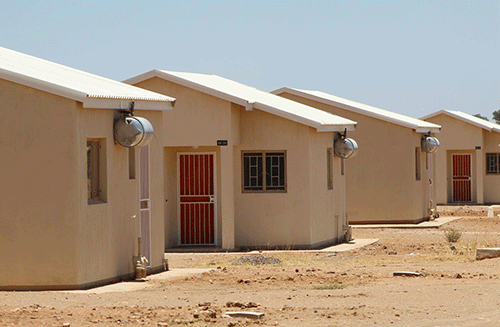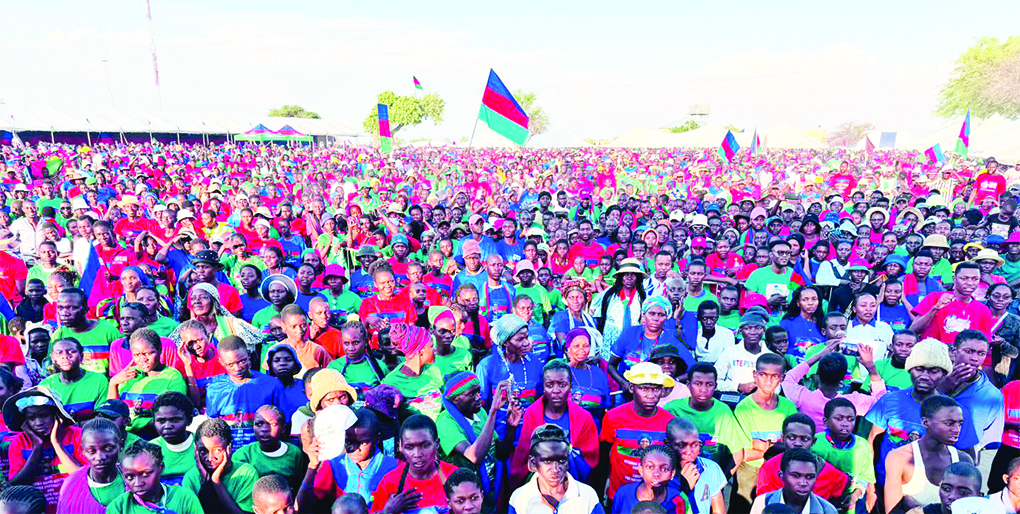LAWYERS representing millionaire German fraud suspect Hans-Juergen Koch last week launched an all-out assault on a Tsumeb Magistrate’s Court ruling that Koch can be extradited to Germany to be put on trial on a host of fraud, tax evasion and forgery charges.
Koch has already spent more than two years in custody in Namibia, following his arrest pending extradition at the request of the German government on October 14, 2002. He is being kept in custody at the Grootfontein Prison, and was not present in the High Court in Windhoek on Thursday and Friday, when his lawyers Louis Botes and Rudi Cohrssen argued that his appeal against the Tsumeb Magistrate’s Court ruling should be allowed.Judges Sylvester Mainga and Kato van Niekerk are scheduled to hear counter-arguments from Deputy Prosecutor-General Danie Small when the appeal hearing continues on November 29.Last week Cohrssen and Botes staged a total onslaught on just about every aspect of Germany’s request for Koch’s extradition.They argued that it was fundamentally flawed in numerous respects, with the result that no finding that Koch could be extradited could be made by a Namibian court.The German government has asked that Koch be arrested and held in custody in Namibia pending his extradition to Germany, where he is to face 203 charges of fraud, 12 counts of tax evasion and four charges of falsifying documents.He is accused of having misappropriated the equivalent of some N$110 million from a financing scheme involving German local authorities between 1996 and 1999.He is also facing allegations that when his financial advice company’s lending and borrowing scheme involving the local authorities collapsed during March 2000, seven local authorities that had been under the impression that they had invested money through Koch’s company were still owed the equivalent of about N$420 million.Of this amount, about N$400 million was not recovered, it is claimed.By the time that the financial scheme collapsed, Koch had already lived in Namibia, where he had bought and developed the luxurious La Rochelle Guest and Hunting Farm in the Tsumeb district, for some three months.He had been granted permanent residence in Namibia in October 1997, and was issued a Namibian travel document in September 2002 – only three weeks before his arrest.Cohrssen’s argument on Thursday focused on what he claimed were fatal shortcomings in the documentation in support of Germany’s extradition request that was submitted to the Tsumeb Magistrate’s court in March last year.Some of these documents were not properly authenticated in terms of Namibia’s Extradition Act, others were not properly certified or translated from German, and the end result was that in fact there was no legally admissible documentation before the court to support the extradition request, Cohrssen argued.He also told the court that the extradition request had been flawed because the complete German laws on which the charges against Koch were based, had not been placed before the court.Botes carried out the second leg of the Koch legal team’s attack on the extradition request.His arguments were directed at the actual charges against Koch – and from Botes’s view of the case, it appears, there is in fact no case against Koch.Botes told the two Judges that the Magistrate who had presided at the extradition hearing in the lower court at Tsumeb had made a mistake when he did not consider each of the 219 charges on its own to establish whether Koch could be extradited on any of those charges, and if so, on which counts.What is more, Botes added, is that on the documentation provided in support of the extradition request no clear case of any criminal conduct on the part of Koch had been made out.The extradition request has so many holes in it that it cannot hold anything, was Botes’s dismissive opinion.That was not the Namibian Government’s fault, but that of the German government, whose duty it was to make sure what the legal requirements were for an extradition request in Namibia, Botes’s argument went.He is being kept in custody at the Grootfontein Prison, and was not present in the High Court in Windhoek on Thursday and Friday, when his lawyers Louis Botes and Rudi Cohrssen argued that his appeal against the Tsumeb Magistrate’s Court ruling should be allowed.Judges Sylvester Mainga and Kato van Niekerk are scheduled to hear counter-arguments from Deputy Prosecutor-General Danie Small when the appeal hearing continues on November 29.Last week Cohrssen and Botes staged a total onslaught on just about every aspect of Germany’s request for Koch’s extradition.They argued that it was fundamentally flawed in numerous respects, with the result that no finding that Koch could be extradited could be made by a Namibian court.The German government has asked that Koch be arrested and held in custody in Namibia pending his extradition to Germany, where he is to face 203 charges of fraud, 12 counts of tax evasion and four charges of falsifying documents.He is accused of having misappropriated the equivalent of some N$110 million from a financing scheme involving German local authorities between 1996 and 1999.He is also facing allegations that when his financial advice company’s lending and borrowing scheme involving the local authorities collapsed during March 2000, seven local authorities that had been under the impression that they had invested money through Koch’s company were still owed the equivalent of about N$420 million.Of this amount, about N$400 million was not recovered, it is claimed.By the time that the financial scheme collapsed, Koch had already lived in Namibia, where he had bought and developed the luxurious La Rochelle Guest and Hunting Farm in the Tsumeb district, for some three months.He had been granted permanent residence in Namibia in October 1997, and was issued a Namibian travel document in September 2002 – only three weeks before his arrest.Cohrssen’s argument on Thursday focused on what he claimed were fatal shortcomings in the documentation in support of Germany’s extradition request that was submitted to the Tsumeb Magistrate’s court in March last year.Some of these documents were not properly authenticated in terms of Namibia’s Extradition Act, others were not properly certified or translated from German, and the end result was that in fact there was no legally admissible documentation before the court to support the extradition request, Cohrssen argued.He also told the court that the extradition request had been flawed because the complete German laws on which the charges against Koch were based, had not been placed before the court.Botes carried out the second leg of the Koch legal team’s attack on the extradition request.His arguments were directed at the actual charges against Koch – and from Botes’s view of the case, it appears, there is in fact no case against Koch.Botes told the two Judges that the Magistrate who had presided at the extradition hearing in the lower court at Tsumeb had made a mistake when he did not consider each of the 219 charges on its own to establish whether Koch could be extradited on any of those charges, and if so, on which counts.What is more, Botes added, is that on the documentation provided in support of the extradition request no clear case of any criminal conduct on the part of Koch had been made out.The extradition request has so many holes in it that it cannot hold anything, was Botes’s dismissive opinion.That was not the Namibian Government’s fault, but that of the German government, whose duty it was to make sure what the legal requirements were for an extradition request in Namibia, Botes’s argument went.
Stay informed with The Namibian – your source for credible journalism. Get in-depth reporting and opinions for
only N$85 a month. Invest in journalism, invest in democracy –
Subscribe Now!










